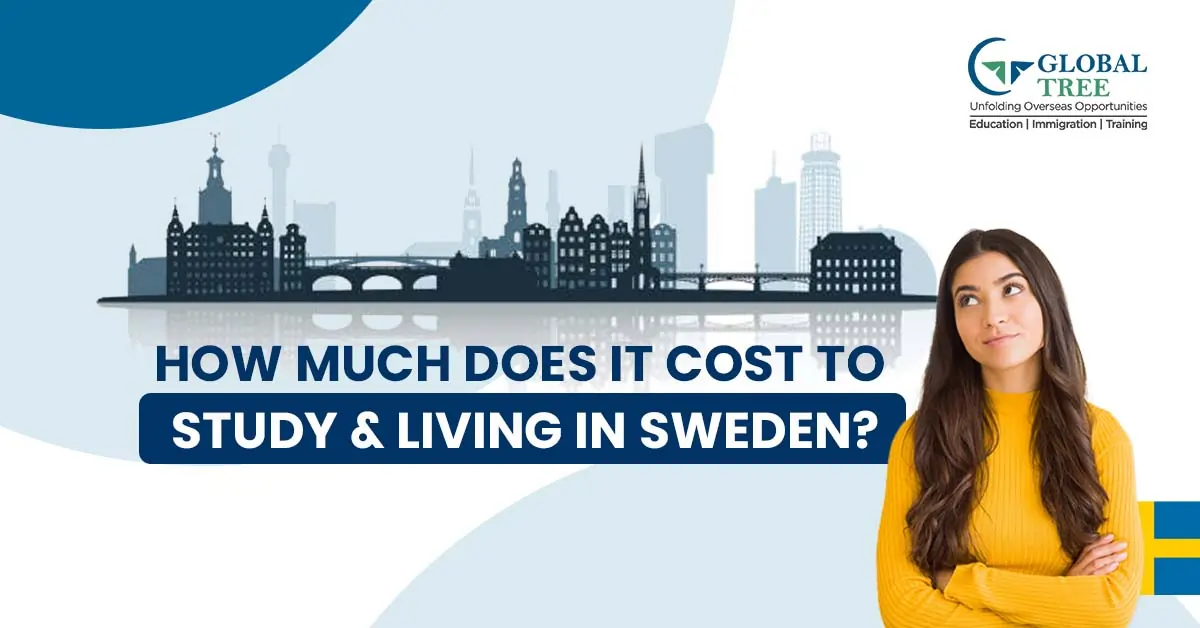✅ Real Monthly Budget for Students in Sweden 2026

- Life in Sweden
- Cost of Living in Sweden
- Cost of Living in India Vs Sweden
- Housing Costs in Sweden Vs India
- Food and Grocery Expenses in Sweden Vs India
- Transportation Expenses in Sweden Vs India
- Utilities and Communication Costs in Sweden Vs India
- Healthcare and Education Costs in Sweden Vs India
- Entertainment and Leisure Expenses in Sweden Vs India
- How to Manage Expenses in Sweden?
- Conclusion
Life in Sweden
Sweden, known for its high quality of life, progressive society, and stunning natural landscapes, is an attractive destination for many Indian expatriates seeking new opportunities abroad. However, before making the move, it's essential to understand the intricacies of the cost of living in this Scandinavian country. In this comprehensive guide, we'll explore the various aspects of living expenses in Sweden, comparing them with those in India and providing practical insights for managing finances effectively.
Cost of Living in Sweden
The cost of living refers to the amount of money required to maintain a certain standard of living in a particular location. The cost of living in Sweden expenses is related to housing, food, transportation, utilities, healthcare, education, and leisure activities.
Cost of Living in India Vs Sweden
Let's begin by comparing the cost of living in Sweden with that in India. According to recent data:
A family of four in Sweden incurs an estimated monthly cost of 289,509.3₹ (37,391.2kr) without rent, whereas a single person's monthly expenses amount to 78,955.0₹ (10,197.3kr) without rent.
The cost of living in Sweden is, on average, 175.7% higher than in India, with rent being a significant contributing factor, being 271.7% higher on average
(Read More: How much is the tuition fees for international students in Sweden?)
Housing Costs in Sweden Vs India
Housing expenses in Sweden vary depending on factors such as location, size, and amenities. Here's a breakdown:
Rent for a one-bedroom apartment in the city center ranges from 7,000.00kr to 18,000.00kr per month, while outside the center, it ranges from 5,000.00kr to 12,000.00kr.
The price per square meter to buy an apartment in the city center is approximately 57,460.55kr, compared to 35,167.64kr outside the center.
Food and Grocery Expenses in Sweden Vs India
The cost of groceries and dining out in Sweden is generally higher than in India. Here are some price comparisons:
| Item | Sweden (kr) | India (₹) |
|---|---|---|
|
Milk (1 liter) |
16.13 |
60 |
|
Loaf of Fresh White Bread (500g) |
29.18 |
30 |
|
Chicken Fillets (1kg) |
121.25 |
300 |
|
Rice (1kg) |
36.01 |
45 |
|
Meal, Inexpensive Restaurant |
125.00 |
200 |
(Read More: Why should you consider studying master’s in Sweden?)
Transportation Expenses in Sweden Vs India
Transportation costs in Sweden include public transport fares, taxi tariffs, and vehicle-related expenses:
| Item | Cost (kr) |
|---|---|
|
Monthly Pass (Public Transport) |
835.00 |
|
One-way Ticket (Local Transport) |
35.00 |
|
Gasoline (1 litre) |
19.49 |
|
Taxi Start (Normal Tariff) |
61.00 |
|
Taxi 1km (Normal Tariff) |
20.00 |



 964 260 9000
964 260 9000